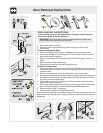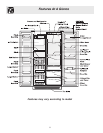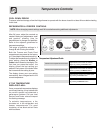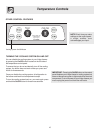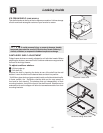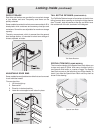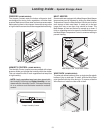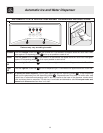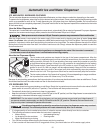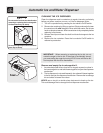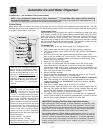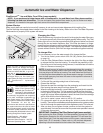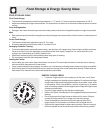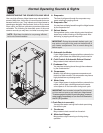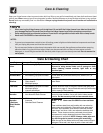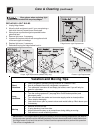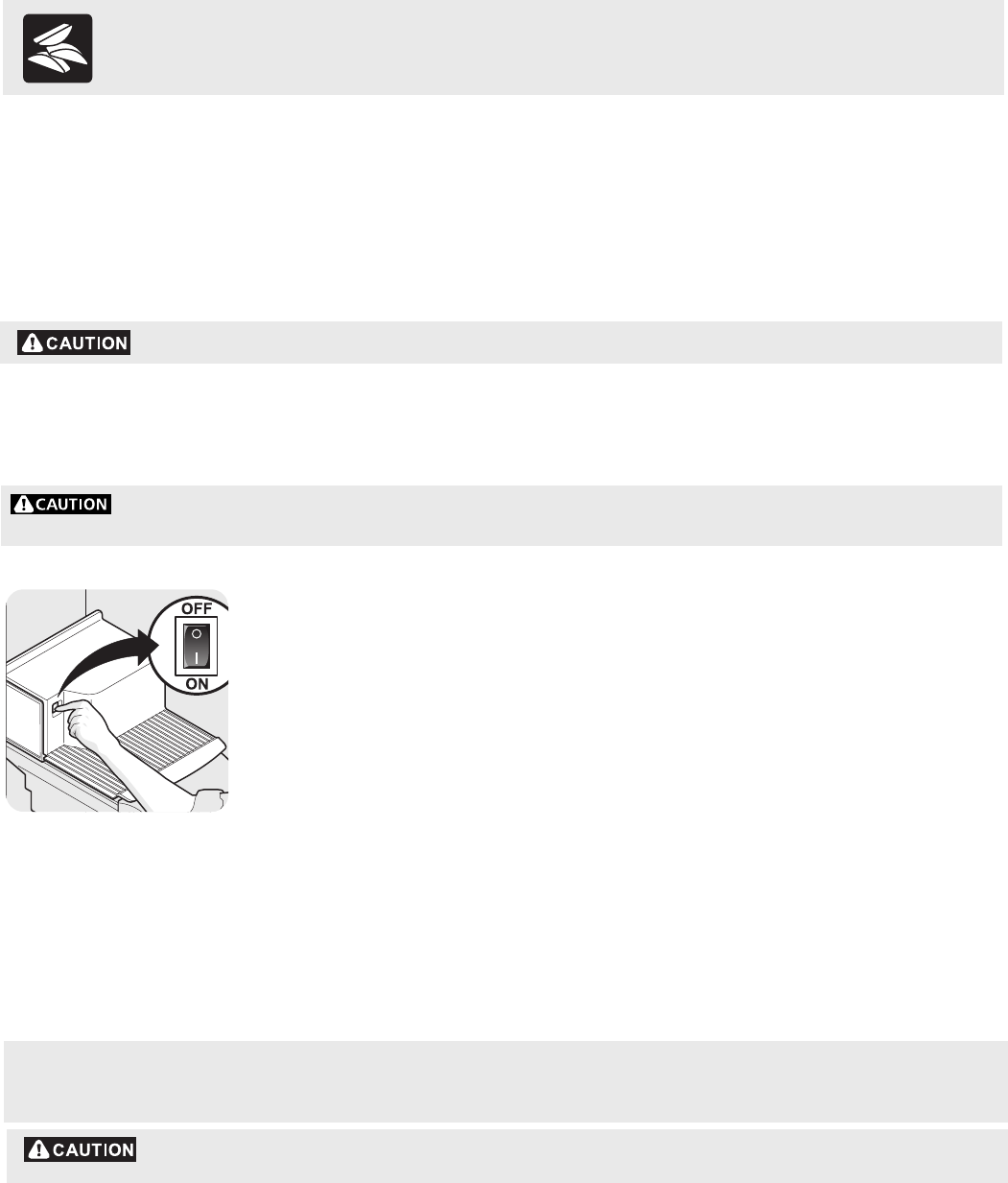
15
ICE AND WATER DISPENSER FEATURES
The ice and water dispenser conveniently dispenses chilled water, and ice cubes or crushed ice, depending on the model.
To operate the ice dispenser, select the ice option desired using the touchpad. Press a glass against the dispensing paddle
as far up as possible to catch all ice. To stop dispensing ice, pull glass away from dispensing paddle. Do not remove the
glass until the ice has completely dispensed. (Complete instructions for the dispenser operation are attached to the inside
of the freezer door.)
How the Water Dispenser Works
The water tank, located behind the refrigerator compartment, automatically fills as water is dispensed. For proper dispenser
operation, the recommended supply water pressure should fall between 20 psi and 100 psi.
How the Ice Dispenser Works
The ice maker and container are located in the top of the freezer compartment. After the
fridge-freezer is installed properly and has cooled for several hours, the ice maker can begin
making ice within 24 hours. Air in new plumbing lines may cause the ice maker to cycle two
or three times before making a full tray of ice. Ice production is controlled by the ice maker’s
On/Off power switch. Press the switch to the “O” position to turn it Off and press it to the “I”
position to turn it On. With no usage it will take approximately 2 days to fill the ice container.
The ice maker also has a built-in wire signal arm,which automatically stops ice production
when the ice bin is full. This signal arm should not be used to manually stop the ice maker.
The ice maker produces 4 to 6 pounds of ice every 24 hours depending on usage conditions.
Ice is produced at a rate of 8 cubes every 75 to 90 minutes.
Because of new plumbing connections, the first production of ice cubes may be discoloured or have an odd flavour. These
should be discarded until the cubes made are free of discoloration and taste.
Chemicals from a malfunctioning softener can damage the ice maker. If the ice maker is connected
to soft water, ensure that the softener is maintained and working properly.
Automatic Ice and Water Dispenser
ICE DISPENSER TIPS
• Ice cubes stored too long may develop an odd flavor. Empty the ice container and ensure that the ice maker’s On/Off
power switch is turned On (set to the “I” position). The ice maker will then produce more ice.
• Occasionally shake the ice container to keep ice separated.
• Keep the ice maker’s On/Off power switch turned Off (set to the “O” position) until the fridge-freezer is connected to the
water supply or whenever the water supply is turned off.
Water pressure must not exceed 100 psi. Excessive pressure may cause water filter to malfunction.
After the fridge-freezer is connected to the water supply, fill the water tank by drawing one glass of water. It may take
about 1½ minutes after activating the dispenser paddle before water begins to fill this first glass. Continue flushing the
system for 3 minutes to rid the tank and plumbing connections of any impurities. The water dispenser has a built in shutoff
device that will stop the water flow after 3 minutes of continuous use. Simply release the dispenser paddle to reset the
shutoff mechanism.
• If a large quantity of ice is needed at one time, it is best to remove cubes directly from the ice container.
• The following sounds are normal when the ice maker is operating:
• Motor running
• Ice dropping into ice container
• Water valve opening or closing
• Turn Off the ice maker when cleaning the freezer and during vacations.
• If the ice maker will be turned off for a long period of time, you should also turn off the water supply valve.
If the dispensing paddle is pushed for more than 4 minutes, the dispenser motor may overload
and stop. The overload protector will reset automatically after 3 or 4 minutes.
IMPORTANT: The ice maker is turned On at the factory so it can work as soon as you install your fridge-freezer. If
you cannot connect a water supply, turn the On/Off switch to the Off (“O”) position. Otherwise, the ice maker’s valve
may be noisy when it attempts to operate without water.
• Ice loosening from tray
• Running water



